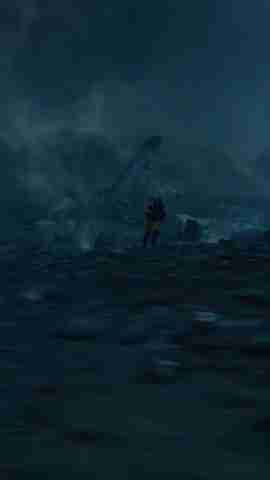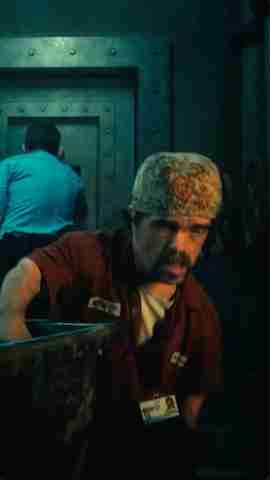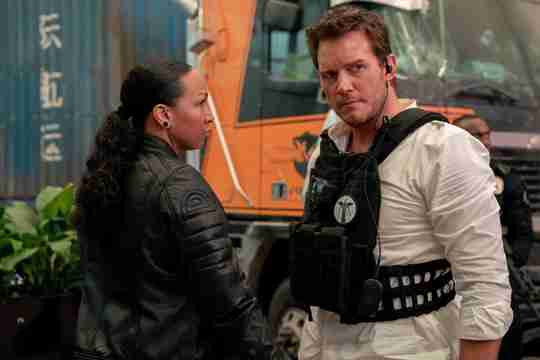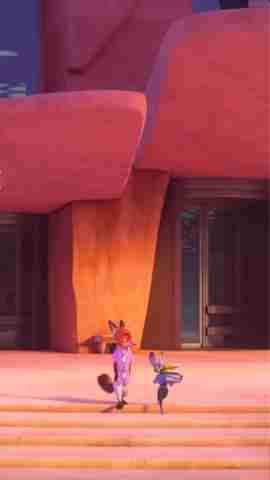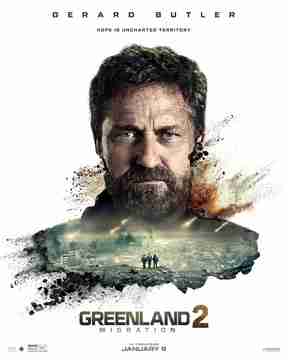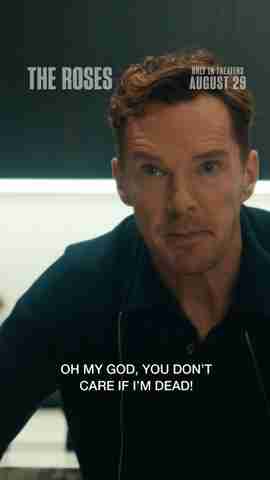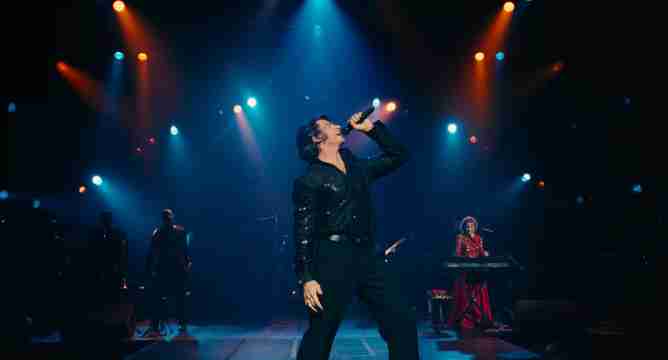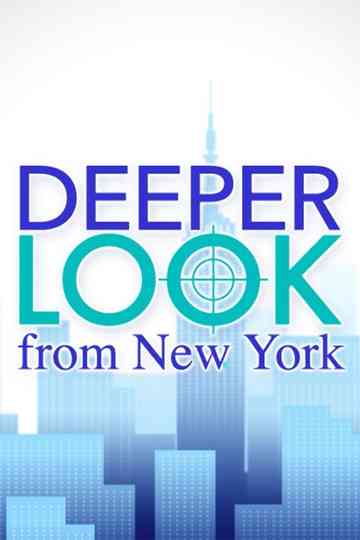Season 1 Episodes
1. Coping with the Coronavirus Pandemic: Jo Ivey Boufford / Clinical Professor of Global Health, New York University
Only 3 weeks after its first coronavirus infection was discovered, New York City became an epicenter of the Coronavirus Pandemic. As NYC remains in lockdown, the fight to save lives continues every day at hospitals throughout the city. How is New York coping with the Pandemic? What steps are New Yorkers taking to combat the crisis, and what can we learn from the experiences this great metropolis has been through? We ask Clinical Professor of Global Health at NYU, Dr. Jo Ivey Boufford.
2. What's Happening in Emergency Rooms: Tsion Firew / Doctor of Emergency Medicine at Columbia University Medical Center, Special Advisor to the Ministry of Health in Ethiopia
The streets of New York are eerily quiet as the city remains in lockdown. But inside hospital ERs, battles are being fought every day. While the number of coronavirus cases and deaths in the state may have plateaued, they remain significantly high. Surrounded by death and the risk of infection, how do doctors and health care workers manage to keep working? We asked Dr. Tsion Firew, who contracted the virus and on recovery, immediately returned to the front lines to resume her duties.
3. Fighting Coronavirus in Africa: Tsion Firew / Special Advisor to the Ministry of Health in Ethiopia, Doctor of Emergency Medicine at Columbia University Medical Center
As the novel coronavirus continues to spread around the world, it is now affecting the African continent, and the number of cases is rapidly rising. To make matters worse, East Africa has been hit by a massive locust swarm, making efforts to control the COVID-19 outbreak even more challenging. We asked Dr. Firew, a Special Advisor to the Ministry of Health in Ethiopia, how the country and other African nations are preparing for the pandemic.
4. What Does the Post-Pandemic Labor Market Look Like?: Erica Groshen / Labor Economist, Cornell University/Former Commissioner of the US Bureau of Labor Statistics
As the U.S. slowly lifts restrictions after a two-month pandemic lockdown, things are not the same. Restaurants are re-opening with limited seating, face masks are required in public. But that's not all that has changed. Unemployment claims have hit 40 million, and the nation worries if jobs will ever come back to the same level before the pandemic. We asked Dr. Groshen about the impact of coronavirus on the labor market.
5. What Will it Take to Stop Racism and Police Brutality?: Damon Hewitt / Executive Vice President, Lawyers' Committee for Civil Rights Under Law
The killing of George Floyd by Minneapolis police officers prompted tens of thousands of people to protest in cities across the U.S. and around the world. While violence and looting erupted in some areas, incidents of law enforcement officers using force on peaceful demonstrators have been witnessed, triggering debate not only about racial discrimination, but also about the role of police in our society. We asked civil rights lawyer, Damon Hewitt, how we can stop racism and police brutality.
6. How Has the Pandemic Changed U.S. Higher Education?: Robert Franek / Editor-in-Chief, The Princeton Review
It is university and college graduation season in the U.S., but this year, things are not the same. Some ceremonies are being held on-line, while others are taking place with graduates practicing social distancing. The pandemic has affected U.S. higher education in many ways. Looking to fall, students and parents in and out of the country are wondering what schools will look like when the new academic year begins. We asked Mr. Robert Franek, an expert on U.S. higher education, for his insights.
7. Transportation and the Pandemic: Sarah Kaufman / Associate Director, New York University Rudin Center for Transportation
In many cities, the pandemic has changed the way people commute. Bicycle and scooter use has increased, while subway and bus ridership has declined. And as people have started to work from home, fewer cars are on the streets, leading to easing traffic congestion and air pollution. But will these issues return after the pandemic? Or is this an opportunity to reimage our transit systems? We talked to Sarah Kaufman, a transport and urban planning expert about the future of transportation.
8. 2020 US Presidential Election Outlook: Rachel Bitecofer / Senior Fellow, Niskanen Center
In less than 4 months, voters will cast their ballots for the next U.S. President. But with the on-going coronavirus pandemic, an economic downturn and the Black Lives Matter movement, the 2020 election looks like no other. Polls show that President Trump is behind his opponent. Will his controversial policies like visa suspension and anti-China rhetoric really help to win back support? We talked with Rachel Bitecofer, an election forecaster and political analyst, about what could happen in November.
9. 75-years on, Is the World Safer from Nuclear Threat?: Daryl Kimball / Executive Director, Arms Control Association
It has been 75-years since the atomic bombing of Hiroshima and Nagasaki, Japan that killed more than 210,000 people by the end of that year. Since then, the US and the Soviet Union, and other states, began an arms race that, to this day, has never ceased. Agreements and talks to reduce nuclear weapons have been put in place, but many have been failing in recent years. What have we learned in 75-years? Is the world safer from nuclear danger? We asked Daryl Kimball, Executive Director, Arms Control Association, for his insights.
10. Fighting Anti-Asian Racism: Russell Jeung / Professor of Asian American Studies, San Francisco State University
As the Black Lives Matter protests continue across the U.S., there is another group fighting racism. Mirroring the spread of the coronavirus pandemic, the number of hate incidents against people of Asian descent has also increased, and slanderous rhetoric like "China Virus" and "Kung Flu" are stoking racial tensions. How can we combat this stigma, prejudice and racism? We asked Dr. Russell Jeung, founder of an online organization that keeps track of racial incidents in the U.S.
11. Is it the Right Time to Reopen Schools?: Borhene Chakroun / Director, Division for Policies and Lifelong Learning Systems, UNESCO
This year, as countries continue to grapple with the pandemic, there are many discussions about whether or not it is the right time to return to school. In the U.S., images of high school hallways packed with students not wearing facemasks went viral on social media, and in some states, schools have been forced to shut down shortly after reopening. But on the flipside, many students and their families are already experiencing difficulties with online learning. So, is this the right time to reopen schools? We asked the director of education UNESCO, Dr. Borhene Chakroun who joins us from Paris, France.
12. When Could a COVID-19 Vaccine Be Ready?: William Moss / Executive Director, International Vaccine Access Center, Johns Hopkins University
As the coronavirus pandemic still sweeps around the world with second waves already erupting in some countries, pharmaceutical companies and research institutes around the world are fast-tracking the development of COVID-19 vaccines. Some scientists say that vaccine trials and approvals take months or even years. However, US President Trump claims one will be available before the presidential election. So, when will we have a safe and effective vaccine? We tapped the knowledge of Johns Hopkins University's Dr. William Moss.
13. Securing Equitable Distribution of COVID-19 Vaccines: William Moss / Executive Director, International Vaccine Access Center, Johns Hopkins University
Many countries are rushing to secure COVID-19 vaccines for their own population's use, and wealthy nations are funding research to procure massive amounts of doses. Some developing countries are trying to secure vaccines, which may not yet be proven safe, raising concerns that there will be discrepancies in vaccine distribution. Should the most vulnerable people and countries have early access to vaccines? We talked to Dr. Moss once again about how global vaccine distribution will work.
14. Sports in the COVID-19 Era: Matthew Futterman / Sports Journalist, New York Times
Major League Baseball, National Basketball League, US Open Tennis and other major sports have resumed in the U.S. But with coronavirus safety restrictions in place, things are not the same, with fewer games, officials in masks, cardboard cutout fans and canned applause. Yet, despite these measures, some athletes have contracted the virus. So, is it worthwhile to hold sporting events, and what about the Tokyo Olympics and Paralympics next year? We asked Sports Journalist, Matthew Futterman.
15. Athletes and Activism: Matthew Futterman / Sports Journalist, New York Times
Recently more athletes are using their platforms to make political statements. Naomi Osaka wore 7 different masks at the US Open to honor victims of police brutality. LeBron James, a top NBA player, took a knee with teammates during the US National Anthem. As athlete voices become more powerful, sports leagues and corporate sponsors face a tough challenge. How far should protests go? Can sports and activism be separated? What about the Tokyo Olympics and Paralympics? We asked sports journalist Matthew Futterman.
16. The US Election and its Effect on Asia: Mike Mochizuki / Associate Professor of Political Science and International Affairs, The George Washington University
By pulling out of international treaties and questioning the management of world organizations, President Trump seems to be pushing the U.S. to step back from its position as a global leader. Meanwhile, China's presence on the world stage is growing even amidst the pandemic by helping nations and institutions. So, what will happen after the US election? How will the President-elect's policies affect America's Asian allies? We asked Dr. Mike Mochizuki for his insights.
17. How Music Can Give Comfort During the Pandemic: Yo-Yo Ma / Cellist
From concert halls and theaters to clubs and restaurants, many venues shutdown under the pandemic, depriving musicians and fans of the magic live music brings. But despite the lockdown, world-famous cellist Yo-Yo Ma picked up his instrument and began to play, sharing music remotely from his home to the world. Soon #SongsOfComfort became viral, providing a platform for artists, professionals or amateurs to express themselves. We asked Yo-Yo how music can help comfort us in these challenging times.
18. How Has America Changed?: Yo-Yo Ma / Cellist
The US presidential election and the chaotic aftermath have shown how deeply divided the country has been. And it looks like it will take a long time to fill the ditch. Yo-Yo Ma was born in France and immigrated to the U.S. in his childhood. He has played for successive presidents and seen the transition in the country. Our host, Del Irani, asked Yo-Yo Ma how he sees America. How can he find hope in the U.S.? And what role music can play.
19. How Can Women's Political Participation Be Enhanced?: Debbie Walsh / Director, Center for American Women and Politics, Rutgers University
2020 has become a historic year for women. Senator Kamala Harris will be the first woman and person of color to serve as Vice President of the United States. Women also made significant gains in both the House and the Senate. Still, the number of women who will hold seats in Congress is only about 26%, far from equal representation. How can we enhance women's participation in politics? And why is it important? We asked Debbie Walsh, who has been helping women run for public office.
20. How Will 2020 Be Remembered?: Walter Isaacson / Author, Professor of American History and Values at Tulane University
The year 2020 could go down in history. As the pandemic spread and the economy screeched to a halt, in the U.S., glaring income inequality and persistent racial disparities came to light. Then followed the contentious presidential election, further highlighting deep-seated divides. So, was 2020 the worst year ever? What can we learn from it? For our last episode of the year, we asked the renowned author Walter Isaacson for his insights and what history, and its great figures can teach us.
21. Challenges in 2021: Walter Isaacson / Author, Professor of American History and Values at Tulane University
As COVID-19 vaccinations begin across the U.S. and the new president soon be inaugurated, what can we expect from 2021? Walter Isaacson, a well-known author of bestselling biographies, is our first guest of the year. Recently he volunteered for the Pfizer/BioNTech clinical trial, where new technologies were used to develop a vaccine, innovations created by scientists he is writing about in his new book. We asked Mr. Isaacson what we can learn from our history and these scientific breakthroughs.
22. How Will the Capitol Riot Be Reckoned with in US History?: Jill Lepore / Professor of American History, Harvard University
The U.S. has long been a leader of democratic nations; a pillar of strength to its allies when facing communist countries or those with authoritarian leaders, although there are arguments concerning some of its foreign operations. But the events on January 6 may have lowered America's position. Some even say it was the darkest day in U.S. history. How will that day be remembered? What did it all mean? And how can the U.S. redeem its democratic standing? We asked Harvard historian Jill Lepore.
23. How Can the Biden Administration Achieve Its Agenda?: Capri Cafaro / Professor of Public Affairs, American University/Former Democratic Leader of the Ohio State Senate
The first 100 days of a new administration is seen as a benchmark measuring a president's early success. President Joseph R. Biden Jr. is moving aggressively to implement his agenda such as the vaccination plan and economic relief package. Many goals require support from Congress. How can President Biden push through key policies and win bipartisan support to unite the country? We asked Capri Cafaro about the path President Biden may take.
24. Combating Hunger During the Pandemic: Valerie Guarnieri / Assistant Executive Director, World Food Programme
For the last several years, a troubling trend shows global hunger is on the rise, with about 690 million people undernourished. And the coronavirus pandemic adds to the numbers. In 2020 the World Food Programme won the Nobel Peace Prize for its efforts to combat hunger. While this helped their mission, they still face many obstacles in their quest to eradicate hunger. We checked in with Valerie Guarnieri to see how the WFP is promoting food security under the pandemic and what is needed to reach their goals.
25. President Biden's Foreign Policy Challenges: Charles Kupchan / Professor of International Affairs, Georgetown University
President Biden faces many foreign policy challenges. During Donald Trump's term, the U.S. pulled out from an array of international accords and institutions. While Biden proclaims, "America is back," it may take years to regain the world's trust. And just 10-days after the inauguration, Myanmar's military led a coup, potentially shifting power in the region and strengthening China's influence. We asked former NSC member Charles Kupchan how the Biden administration will shape their foreign policy.

